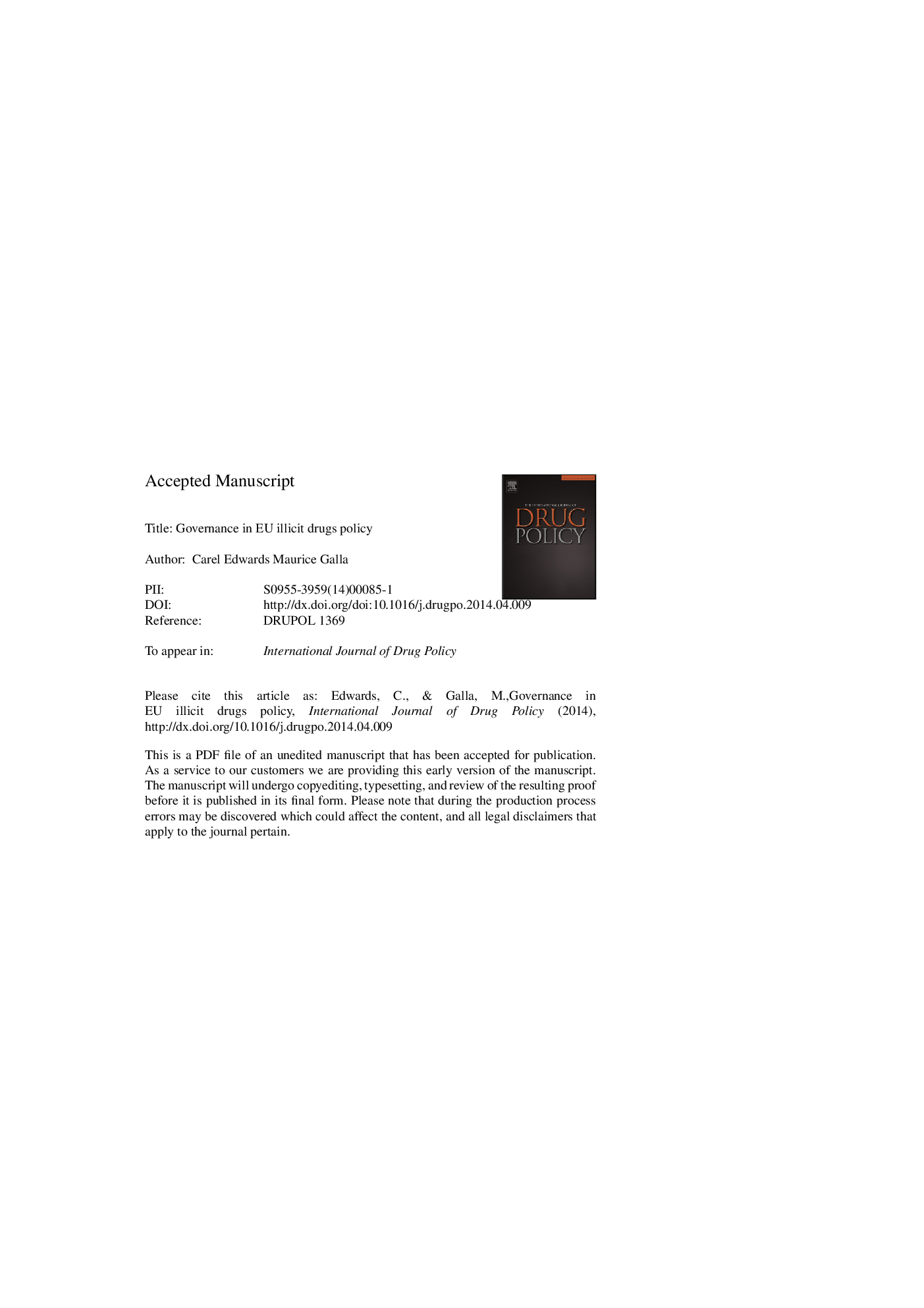| Article ID | Journal | Published Year | Pages | File Type |
|---|---|---|---|---|
| 7513757 | International Journal of Drug Policy | 2014 | 20 Pages |
Abstract
This commentary represents the authors' views on EU governance in illicit drug policy, a field in which they were active for more than 10 years between them. EU drug policy has a narrow legal basis in the European Treaties and is mostly non-binding. The main policy instruments are 8-year EU Drug Strategies, underpinned by 4-year Action Plans which set out specific objectives at national, EU or international level. The approach that guides EU drug policy is known as the 'balanced approach'. It is remarkably restrained and reflects the reality that very few Member States have either the socio-political culture or the resources to consistently apply the punitive sanctions foreseen by the UN conventions. An important feature of EU governance in the field of drugs is the proactive support that is provided to non-governmental organisations both within the EU as well as in accession, associated or third countries. At a global level, the EU is a major financial aid donor also in this field. This position is not however reflected in corresponding political clout for the EU within the UN system. EU governance on drugs has made it possible for many of its Member States to accommodate the problem rather than to “solve” what by all the evidence from the last 100 years may well be insoluble, at least by means of criminalisation and prohibition. The big question is where EU drug policy is headed in the next few years. The EU has been promoting measures and practices that target real problems. It has done so without indulging too much in unhelpful rhetoric. However, like all successful formulae this one also has a sell-by date. EU governance in the field of drugs cannot afford to stand still. It needs to find a second wind.
Keywords
Related Topics
Health Sciences
Medicine and Dentistry
Psychiatry and Mental Health
Authors
Carel Edwards, Maurice Galla,
